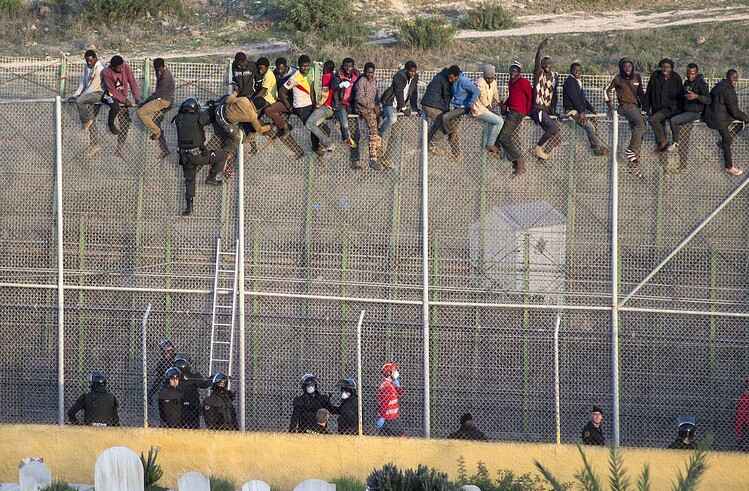
Europe is still trying to recover from the endless blows it has received lately. War in Ukraine, worsening of relations with Russia, increase in inflation and poverty (especially in the states of the south) and of course the energy crisis, are just a few of the challenges that the EU must face. Last week, however, European leaders dealt with another phenomenon that variously affects the EU. The debate in Brussels had again evolved around migration, a debate that no longer aims to provide proposals but to prevent migration towards Europe. In particular for the leaders of the EU’s border countries this debate can be reduced to a simple phrase, “more border control = more votes”.
When of course nowadays, we in the European Union talk about migration, refugees and border protection, we must also make the necessary clarifications. The European leaders’ aversion to migration is primarily due to immigration from Asia and Africa. In contrast, migration from war-torn Ukraine is welcome. The presence of Ukrainian President Volodymyr Zelenskyy at the European Council in fact underlines European hypocrisy in the most glaring way.
Almost 5 million Ukrainians have been forced to move to the EU since last February when the Russian invasion began. Ukrainians have been given temporary protected status which gives them the right to work and access public services and benefits, rights that typical asylum seekers cannot even imagine. This is where the hypocrisy of the EU unfolds as the specific direction of granting temporary protected status has been in the hands of the EU for almost 20 years now. But never in the past, even in the large transit of populations experienced by the member states of the south in the period 2014-2016, was it implemented.
On the contrary, according to the president of the European Council Ms. von der Leyer “There are without any doubt increasing pressures at our external borders.”. This is because in the last year the applications for asylum – of which we cannot know how many will be awarded refugee status – reached 924,000. Through the most official authority, therefore, we understand that now the EU has fallen – intentionally or not – on the line of far-right voices who for years argue that people who arrive in Europe should be treated as a threat.
This conversion did not happen overnight. Since 2012, the EU has been intensifying its transformation into a fortress, and like all fortresses, it has its own fences. Walls are being erected across the length and breadth of the Union, from Spain and Greece to France and Lithuania. In total, according to a letter sent to Members and staff of the European Parliament, more than 12,000 km of Europe’s external land borders are fenced off.
Among the supporters of the fences as it looks is the leader of the EPP in the EU Parliament Mr. Weber. A few days ago, in a comment on Twitter Mr. Weber said “”fences, in exceptional cases, are not taboo for us. We must restore order at Europe’s external borders. As seen in Spain, Greece & Bulgaria, technical measures & law enforcement may be necessary”. In contrast to the far-right parties, however, Mr. Weber has also referred to the issue of solidarity and the right to asylum during this time.
In any case, the debate surrounding immigration in the EU must change radically. As long as migration is treated as a problem and not a part of human history, rights will continue to be violated (as documented many times by media and organizations) and lives will continue to be lost. The EU cannot become an impenetrable fortress wrapped in barbed wire. Solidarity and help must be equal for everyone, regardless of color, religion, geographical determination and any other form of discrimination. But most importantly, the EU must stay true to its values and protect human life, putting aside ideologies and votes.















